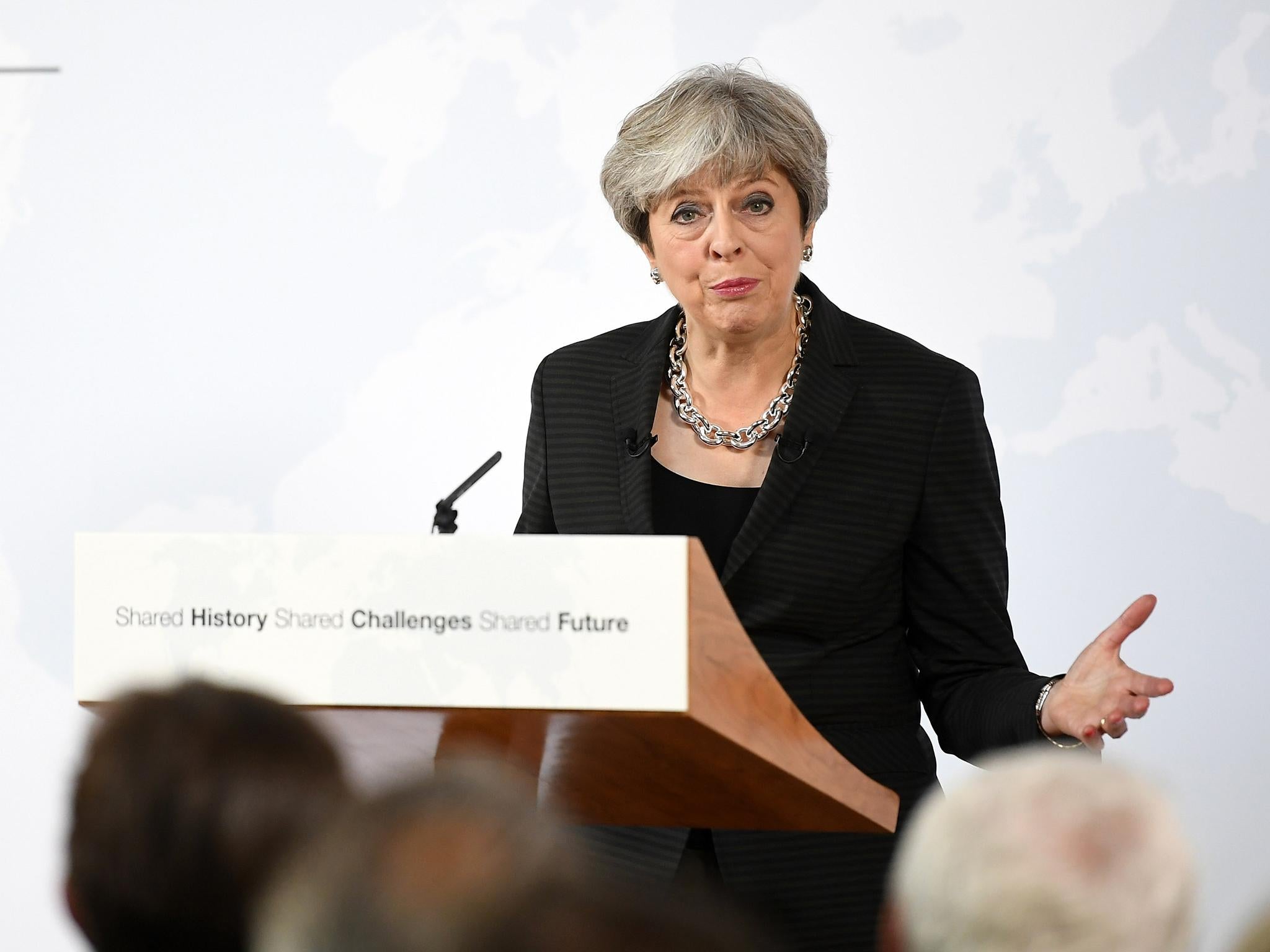UK credit rating downgraded due to Brexit uncertainty
Moody's agency said it is "no longer confident that the UK government will be able to secure a replacement free trade agreement with the EU which substantially mitigates the negative economic impact of Brexit"

The UK's credit rating has been downgraded by Moody's Investor Service because of economic uncertainty surrounding Brexit.
The downgrade came just hours after a major speech by Theresa May, which she had hoped would clarify the UK's position on Brexit.
Moody's also said an easing of austerity was behind its decision to lower the UK's rating.
The news will come as a huge blow to Ms May just hours after her speech in Florence, Italy, in which she confirmed that Britain will leave the European single market but offered little clarity on plans for an alternative economic relationship.
In response, Moody's warned of "uncertainty for businesses" and said the current plans for Brexit will cause the "erosion of the UK's medium-term economic strength".
In a damning assessment of the Government's negotiating strategy to date, analysts said: "Moody's is no longer confident that the UK government will be able to secure a replacement free trade agreement with the EU which substantially mitigates the negative economic impact of Brexit.
"While the government seeks a 'deep and comprehensive free trade agreement' with the EU, even such a best-case scenario would not award the same access to the EU Single Market that the UK currently enjoys.
"It would likely impose additional costs, raise the regulatory and administrative burden on UK businesses and put at risk the close-knit supply chains that link the UK and the EU."
Brexit: the deciders
Show all 8It also cited a relaxation of spending restrictions imposed between 2010 and 2015, warning of "increasing political and social pressures to raise spending after seven years of spending cuts".
The Government announced last week that the public sector pay cap will be lifted from next year, and has taken a number of other steps to ease austerity, including increasing spending on health and adult social care.
The ratings agency said: "Overall, Moody's expects spending to be significantly higher than under the government's current budgetary plans and higher than the rating agency expected when the negative outlook was assigned in June 2016."
As a result, it said, it expects the UK's budget deficit to remain around 3.5 per cent of GDP - significantly higher than the below 1 per cent by 2020-21 that ministers have promised.
The UK is "among the few highly-rated European sovereigns where the public debt ratio continues to rise", the agency added.
In a further blow to Ms May, Moody's said the Conservatives' deal with the DUP was another reason for the downgrade. It highlighted the £1bn given to Northern Ireland as part of the parliamentary pact as another cause of increased public spending.
Despite downgrading the country's credit rating, analysts raised the UK's overall outlook from "negative" to "stable" because they believe "some form of a free trade agreement [with the EU] is in the interest of both sides and will ultimately be agreed".
Moody's said hints that the UK government was "softening its negotiating stance in a number of areas", especially on the need for a transitional period before Britain fully leaves the EU, was behind the change to "stable".
The Government hit back within hours of the downgrade being announced, claiming the decision was based on "outdated" evidence.
A spokesperson said: “The assessments made about Brexit in this report are outdated. The Prime Minister has just set out an ambitious vision for the UK’s future relationship with the EU, making clear that both sides will benefit from a new and unique partnership.
“The foundations on which we build this partnership are strong. The government has a robust economic record which has delivered four and half years of continuous growth and a record number of people in work. We have made substantial progress in reducing the deficit while finding extra money for the NHS and social care at the same time. We are not complacent about the challenges ahead but we are optimistic about our bright future.”
Subscribe to Independent Premium to bookmark this article
Want to bookmark your favourite articles and stories to read or reference later? Start your Independent Premium subscription today.

Join our commenting forum
Join thought-provoking conversations, follow other Independent readers and see their replies